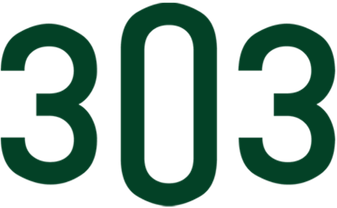Enhancing ROI Through Effective Facebook PPC Advertising Strategies
Selecting the right platform for e-commerce PPC is essential for the success of your advertising campaign. Facebook PPC advertising stands out as a powerful tool that allows businesses to effectively reach highly targeted audiences and drive sales. In this blog post, you will learn everything you need to know about Facebook PPC advertising, from its definition to best practices for achieving success.

In the dynamic landscape of online marketing, leveraging pay-per-click (PPC) advertising on platforms like Facebook can be a game-changer for businesses seeking to maximise their return on investment (ROI). This article delves into the essentials of Facebook PPC advertising, providing insights and strategies to enhance your advertising efforts.
Understanding Facebook Ads Pay-Per-Click
Facebook Ads operate on a pay-per-click model, where advertisers only pay when users click on their ads.
This model allows for budget-friendly advertising solutions as it provides control over costs and allows precise targeting of potential customers.
Advertisers can set daily or lifetime budgets, ensuring that they never exceed their financial limits.
This flexibility makes Facebook Ads accessible to businesses of all sizes, from small startups to large corporations, enabling them to reach a vast audience without the fear of overspending.
Understanding how Facebook's algorithm functions in conjunction with user behaviour can significantly impact the performance of your ads.
Knowing how to craft your messaging and visuals to align with the expectations of your target audience is essential for improving click-through rates.
Additionally, Facebook's algorithm rewards ads that engage users, meaning that high-quality images, compelling copy, and relevant calls to action can lead to better ad placements and lower costs per click.
A/B testing different ad variations can also provide insights into what resonates best with your audience, allowing for continuous optimisation of your campaigns.
Furthermore, leveraging Facebook's robust targeting options can enhance the effectiveness of your ads.
Luxury brands can target users based on demographics, interests, behaviours, and even custom audiences derived from their existing customer lists.
This level of precision ensures that ads are shown to individuals who are more likely to convert, thereby maximising the return on investment.
Additionally, retargeting campaigns can remind users who have previously interacted with your brand, nudging them closer to making a purchase.
By utilising these advanced targeting tools, businesses can create highly personalised ad experiences that drive engagement and increase the likelihood of clicks.
Understanding the importance of ad placement can also play a crucial role in the success of your Facebook advertising strategy.
Facebook offers various placements, including the news feed, stories, and the right column, each with its own unique advantages.
For instance, ads in the news feed tend to have higher visibility and engagement compared to those in the right column.
By analysing performance metrics across different placements, advertisers can allocate their budgets more effectively and focus on the channels that yield the best results.
This strategic approach not only enhances visibility but also fosters a deeper connection with the audience, ultimately leading to increased brand loyalty and higher conversion rates.
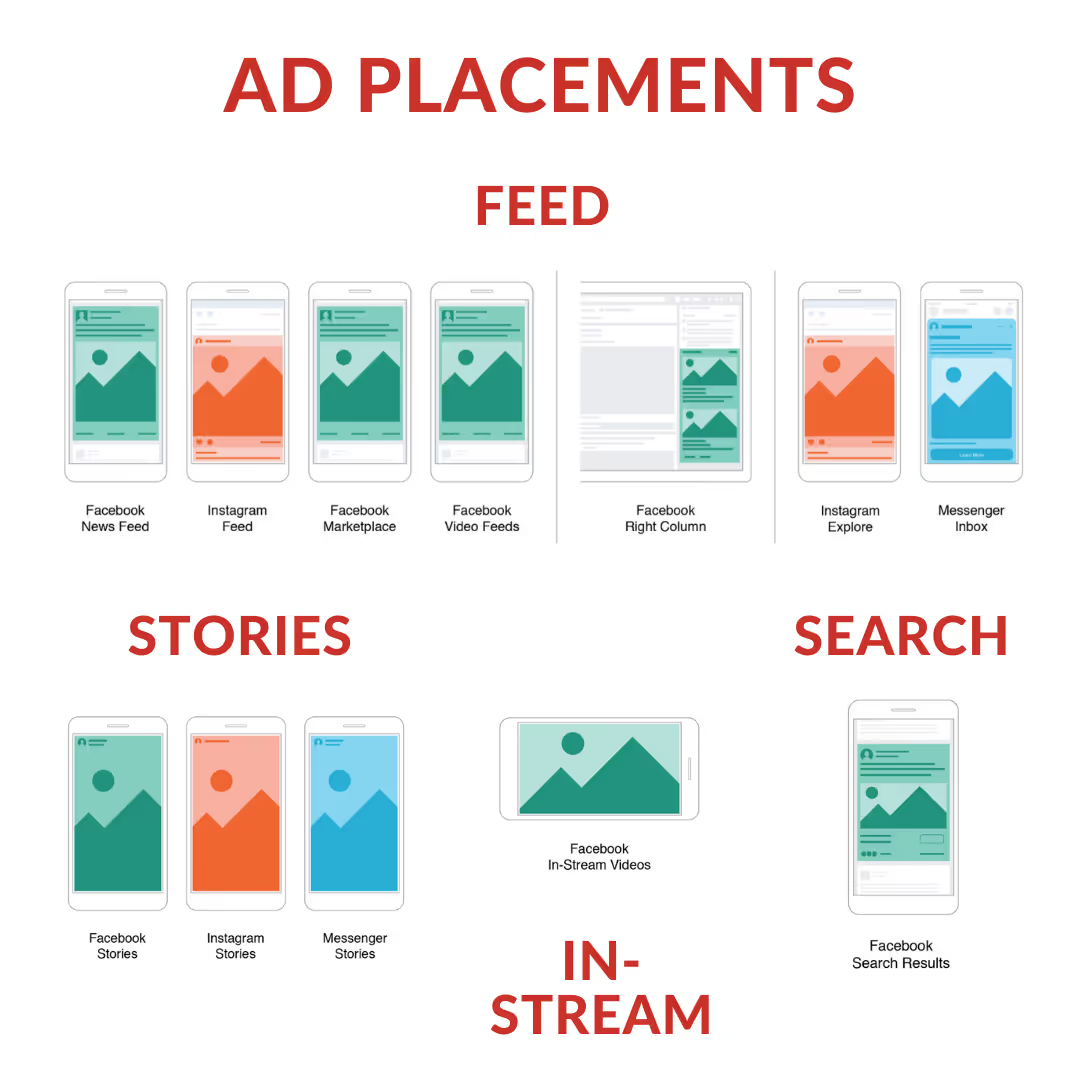
Locations for Your Facebook Ads
One of the most powerful features of Facebook PPC advertising is the ability to choose specific locations for your ads. This can include geographic areas, behaviours, and interests that your target audience exhibits.
By strategically selecting locations, you increase your ad's chances of reaching the individuals most likely to engage with your offerings. For example, targeting users in metropolitan areas may yield different results compared to rural audience segments.
Facebook allows premium brands to drill down even further by utilising geo-targeting options such as zip codes, cities, or even specific neighbourhoods.
This level of granularity enables businesses to tailor their messaging and promotional strategies to resonate with local cultures and preferences.
For instance, a restaurant in a bustling urban centre might focus on quick lunch specials, while a family-oriented diner in a suburban area could highlight weekend brunch deals or kid-friendly menus.
Additionally, understanding the seasonal trends and local events can significantly enhance the effectiveness of your ad campaigns.
For example, if you're promoting a luxury beachwear line, targeting coastal areas during the summer months can lead to higher engagement rates.
Similarly, aligning your ads with local festivals or holidays can create a sense of urgency and relevance, prompting potential customers to take action. By leveraging these insights, you can create more compelling ads that resonate with your audience on a deeper level.
Advantages of Facebook Ads Pay-Per-Click
The advantages of utilising Facebook’s PPC advertising are significant, making it a popular choice among marketers worldwide. Below, we explore some key benefits that make Facebook Ads a prime option for premium and luxury brands.
Access to a Vast Global Audience
Facebook boasts over two billion active users, equipping advertisers with an unparalleled opportunity to reach a diverse range of potential customers globally. This vast audience means that regardless of your niche, there are likely users interested in your products or services.
This expansive reach enables brands to build awareness and drive engagement on a scale that traditional advertising methods often cannot match.
Additionally, the platform's international presence allows businesses to tap into emerging markets and connect with audiences in different regions, adapting their messaging to resonate with local cultures and preferences.
As a result, companies can cultivate a global brand identity while still nurturing local connections.
Precision Targeting Capabilities
Facebook's sophisticated targeting options allow advertisers to define their audience based on numerous factors, including age, gender, location, interests, and behaviours. This level of precision ensures that your ads are shown to those most likely to convert, maximising the effectiveness of your campaigns.
Furthermore, utilising lookalike audiences can help you reach new customers who share characteristics with your existing customer base, widening your potential reach while still maintaining targeted engagement.
The ability to refine your audience over time based on performance analytics also means that your advertising strategy can evolve, ensuring that you are always connecting with the most relevant potential customers.
This iterative approach not only enhances engagement but also improves your return on investment as you fine-tune your targeting strategies.
Cost-Effective Advertising Solutions
Unlike traditional advertising methods that require significant upfront costs, Facebook PPC provides a flexible and cost-effective solution. Advertisers can set daily or lifetime budgets, ensuring they only spend what they can afford.
This affordability extends beyond mere cost control; it also facilitates the opportunity for small and medium-sized businesses to compete alongside larger corporations in the advertising space.
Moreover, the performance-based nature of PPC means that advertisers only pay when users engage with their ads, whether through clicks, impressions, or conversions.
This model encourages continuous optimisation and experimentation, allowing businesses to test different ad formats and messaging without the fear of overspending. As a result, companies can discover what resonates best with their audience while maintaining a sustainable advertising budget.
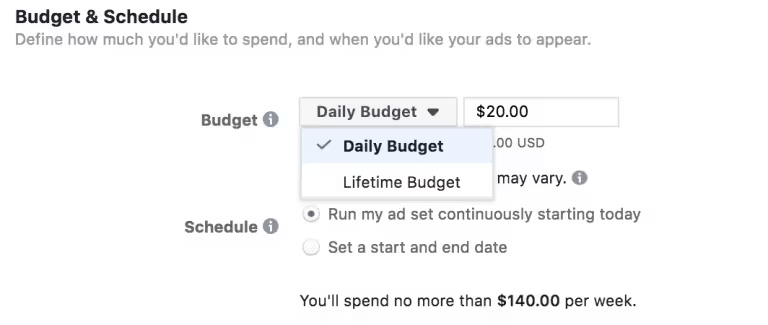
The Mechanics of Pay-Per-Click on Facebook
To effectively navigate Facebook PPC advertising, it’s crucial to understand the mechanics behind how ads are served and how payments are structured. When you create an ad, you bid against other advertisers vying for space in users' feeds, known as an ad auction.
Each ad's placement is determined not only by the bid amount but also by the relevance and quality of the ad, as evaluated through Facebook's ad system. This means that well-targeted and high-quality ads can perform better and cost less.
Moreover, Facebook employs a sophisticated algorithm that takes into account user engagement metrics, such as click-through rates and interactions, to determine the overall effectiveness of an ad.
This means that ads that resonate well with the target audience can enjoy a lower cost-per-click (CPC) and improved visibility. Advertisers are encouraged to continually refine their ad copy, visuals, and targeting parameters to enhance engagement.
A/B testing different versions of ads can provide valuable insights into what elements are most appealing to users, allowing for more strategic adjustments in real-time.
Additionally, understanding the demographics and behaviours of your target audience is essential for optimising ad performance.
Facebook offers a wealth of analytics tools that allow advertisers to track user interactions and gather data on how different segments respond to various campaigns. By leveraging this information, advertisers can tailor their messages to align more closely with the interests and preferences of their audience, creating a more personalised advertising experience.
This not only boosts the chances of conversion but also fosters brand loyalty as users feel more connected to the content being presented to them.

Cost Breakdown of a Facebook PPC Campaign
The cost of running a Facebook PPC campaign can vary greatly based on numerous factors, including industry competition, audience size, and ad quality. Typically, payments are calculated in terms of cost-per-click (CPC) or cost-per-thousand-impressions (CPM).
Understanding how these costs accumulate is essential for setting realistic budgets and projections. Analysing past performance data can also provide insights into expected expenditure, allowing for more informed decisions moving forward.
Best Practices for Facebook PPC Ads
To achieve the best possible results from your Facebook PPC campaigns, adhering to established best practices can make a notable difference. Below are several key strategies to consider:
Targeting Specific Audiences Effectively
Utilising Facebook's targeting features enables you to reach specific demographics effectively. Begin by analysing your current customer base to determine key characteristics. Use these insights to create audience segments tailored to various ad campaigns.
Consider experimenting with different audience targeting strategies to identify which ones yield the highest conversions while minimising ad spend.
Crafting Compelling Advertising Creatives
Your ad's visual components and messaging play a crucial role in capturing attention and encouraging clicks. Strive for a balance of eye-catching imagery and clear, compelling copy that speaks directly to the desired audience's needs and desires.
Test various creatives to find the combination that resonates best with your audience, ensuring to maintain brand consistency throughout.
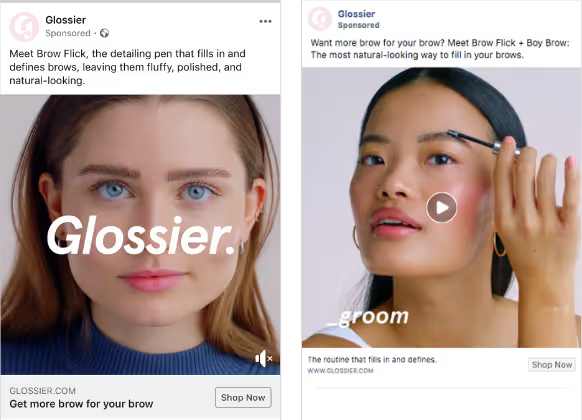
Landing Page Optimisation Techniques
Once users click on your ad, they arrive at your landing page. Ensuring this page is optimised for conversions is critical. Make sure it aligns with the messaging and offer presented in the ad for a cohesive experience.
Utilise clear call-to-action buttons, and consider A/B testing landing page variations to optimise for higher engagement and conversion rates.
Setting a Realistic Budget
Setting a budget that reflects your goals and resources is key to a successful Facebook PPC strategy. Analyse your previous ad spend and ROI to establish benchmarks that inform your new campaigns.
Always monitor your campaigns and be willing to adjust your budget as needed to capitalise on successful ad sets or mitigate underperforming ones.
Utilising Data-Driven Strategies for Optimisation
Analytics play a vital role in the success of any Facebook PPC campaign. Use Facebook's Ads Manager to track essential metrics such as click-through rates, conversions, and cost per acquisition.
Regularly analyse your campaign performance and make data-driven adjustments to improve results over time. Emphasize learning and iteration, as this approach leads to sustained improvement and increased ROI.
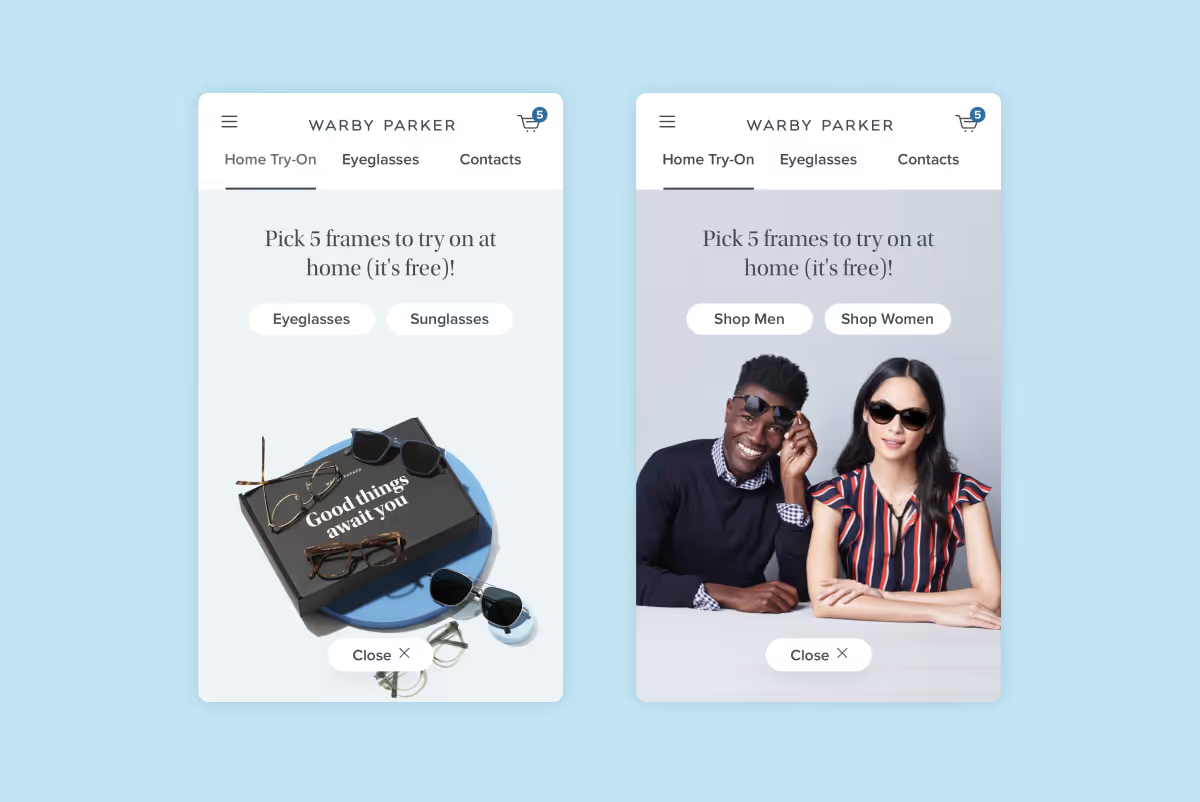
Evaluating the Effectiveness of Your Facebook PPC Campaign
After executing your campaigns, it is crucial to evaluate their effectiveness thoroughly. Regular assessments help identify successes and areas for improvement, informing future advertising strategies.
Establishing Key Performance Indicators (KPIs)
To measure success accurately, establish specific key performance indicators (KPIs) aligned with your business objectives. Common KPIs for Facebook PPC campaigns include conversion rates, return on ad spend, and engagement rates.
By consistently tracking these metrics, you can better understand your campaign performance and make necessary adjustments to maximise ROI, ensuring your advertising efforts produce the desired outcomes.
In conclusion, mastering Facebook PPC advertising is a potent avenue for maximising your ROI. By understanding the intricacies of the platform, implementing best practices, and continuously optimising your strategies, you can effectively reach your target market and achieve your business goals.
